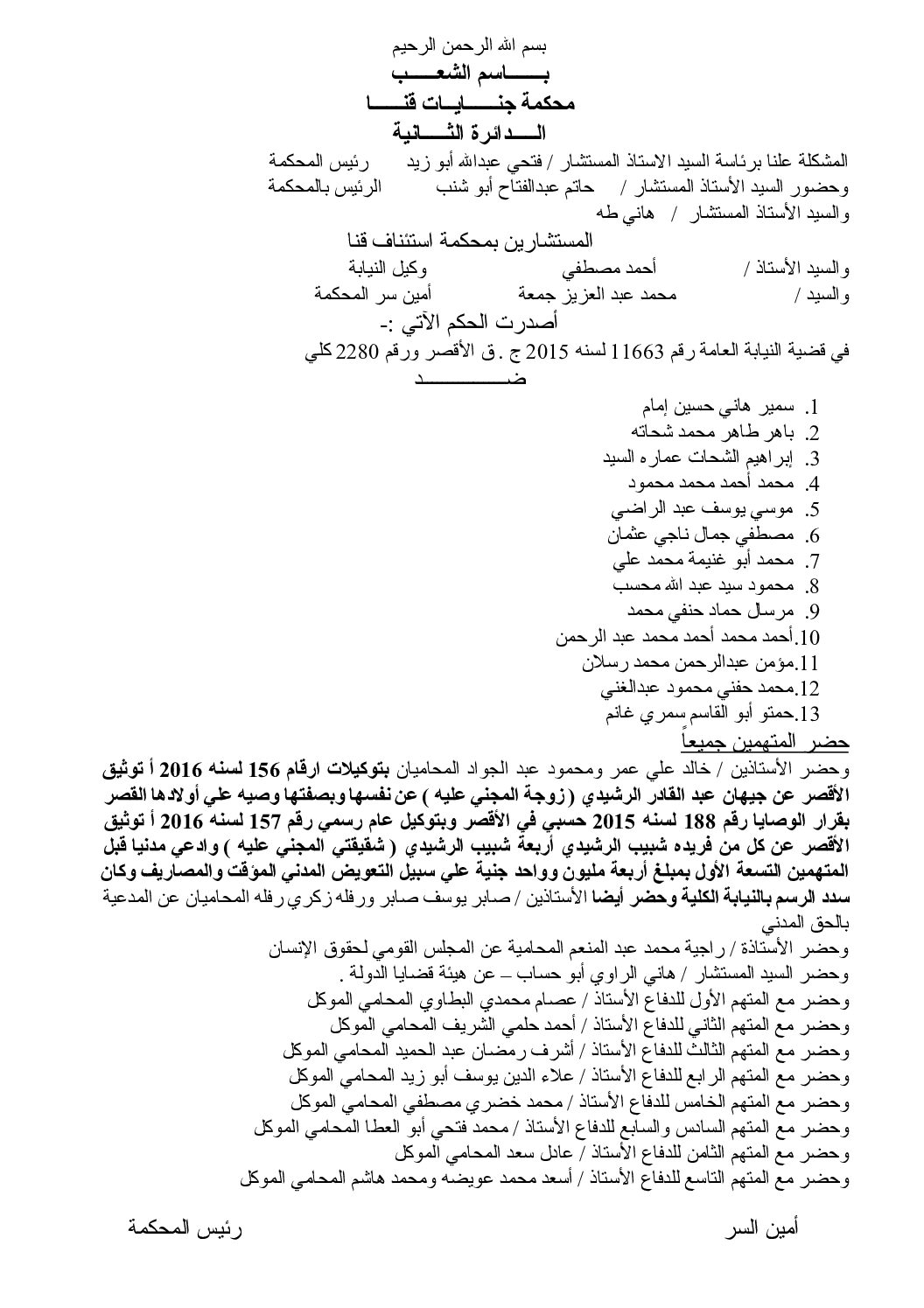Trade | Egypt and Other Developing Countries in the WTO: A Battle for State Support to the Agriculture Sector
Egypt and Other Developing Countries in the WTO: A Battle for State Support to the Agriculture Sector
The Egyptian Trade Minister will attend the 9th Ministerial Conference (MC9) of the World Trade Organization (WTO), held in Bali between the 3rd and 6th of December 2013 to discuss a number of pertinent issues to the global trade regime, including agriculture and trade facilitation. Within this, the WTO agenda aims to further enshrine the corporate-led global economic paradigm that has proven to present many developmental challenges to the developing and least developed countries (LDCs). This economic model led to policies that have directly hindered Egypt’s abilities to develop its economy and to provide its citizens with their social and economic rights. Such policies have resulted in financial instability, widened social gaps, marginalized citizens, rendering them unable to access market-priced services, exacerbated the climate crisis, and threatened food security. While the demerits of the current hegemonic economic order have crystallized in Egypt, Civil Society Organizations (CSOs) in the Arab region fear that the WTO will embark on further consecrating this model in the upcoming Ministerial Conference in Bali, sidelining the hopes of achieving a just, multilateral trading system that respects the development needs of the Third World.
On the agenda of the Trade Ministers, negotiating terms for an agreement on agriculture and food security may come as a trade-off to negotiations on a trade facilitation agreement; as implications of the latter render the former obsolete. The G33 proposal, an initiative led by India and a number of developing countries, calls for an exemption from subsidy commitments imposed by the WTO on states, arguing that those are needed to engage in food security initiatives to protect local farmers and vulnerable populations. Egypt has time and again expressed its support for this proposal, but its attempts – along with those of other developing countries – have been shut down. The United States and the EU expressed their reservations to this proposal despite that they unfairly subsidize farmers and certain exports in hundreds of billions of dollars annually.
This can be illustrated when comparing the 38% of the EU annual budget spent on farm subsidies to the 0.5% of the Egyptian subsidy budget spent on agriculture in general. Moreover, negotiating trade facilitation (TF) would entail that the goals proposed by the G33 will be unattainable; as the terms of TF can pose many burdens on developing countries, cornering them into an inability to spend on key development objectives such as food security for example. While developed countries view such negotiations as a means to enhance trade relations and contribute to the development of the WTO member states, they disregard the negative implications inherent in such negotiations. First, TF will merely lead to the facilitation of more imports from developed countries; ultimately harming local industries and producers in the developing world, due to the latter’s inability to compete with more developed markets. Second, developing countries can face financial burdens ensuing from the removal of customs and tariffs and the potential costs that result from the WTO dispute settlement mechanism in case of the state’s inability to implement terms of the agreement. This financial burden will divert spending away from the state’s development objectives to merely meet the responsibilities assumed in TF. In attempting to circumvent the aforementioned consequences of trade facilitation, special and differential treatment (SDT) is deemed necessary – as has been highlighted by Egyptian delegations on a number of occasions. Nevertheless, discussions around special and differential treatment remain inadequately addressed in the 9th Ministerial Agenda.
Trade Ministers and MNCs of Developed countries have also started discussing the “post-Bali” agenda with issues that include the Information Technology Agreement (ITA) and the Trade in Services Agreement (TISA). Expanding the ITA will only benefit Transnational Corporations (TNCs) and entail that local manufacturers can be pushed out of business as technology transfers will be stifled due to patent monopolies. Furthermore, it will erode the policy space of developing countries and impede their ability to create domestic industry, generate employment, and develop technologies. Similarly, negotiating TISA will entail that the state will have a smaller role in providing essential services for its citizens, which will in turn marginalize social groups unable to afford necessary services due to their high costs.
CSOs of the Arab region are demanding a fair trade agenda that will overcome the challenges outlined above and respect the needs of the developing countries and their citizens. These demands will continue to be articulated as long as nations from the developing world are vulnerable to the unfair terms they experience. Yemen for instance, recently joining the WTO in 2013, received a transition period to implement the terms of the TRIPS agreement that is five years shorter than other LDCs.
The current agenda seems to present a ‘corporate wish list’ that will further exacerbate many of the challenges faced by Egypt. Despite Egypt’s efforts in pushing for a fair trade agenda, the WTO requires consensus on any agreement in order for it to pass – which seems unlikely with the currently fragmented group of Trade Ministers. The attached document explores these issues further and proposes a set of recommendations and economic policies that would respect human rights; positing that trade should only be a tool for development and not an impediment to it.

